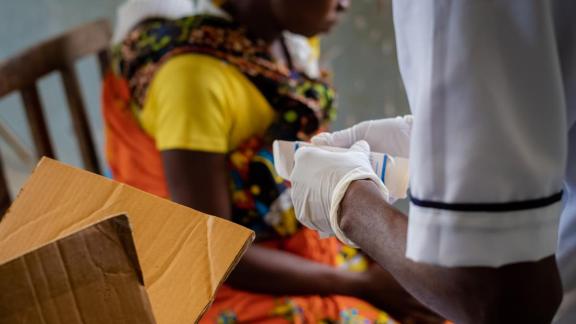What is mpox (previously known as monkeypox)?
Mpox is a viral zoonotic disease typically occurring in tropical areas in central and west Africa.
When did the first cases of Mpox appear?
From May 2022 - July 2023, multiple cases of mpox were identified in non-endemic countries, and the World Health Organization declared the mpox outbreak a Public Health Emergency of International Concern.
During the outbreak, nearly 100,000 people were infected, primarily gay and bisexual men, and approximately 200 people died.
Are there new infection cases in 2024?
Globally, new infections have decreased substantially; however, rates have recently surged across 13 African countries, including some which had never reported cases of mpox before.
In response, the World Health Organization declared mpox a public health emergency of international concern on 14 August 2024 for the second time.
How does Mpox manifest?
The infection manifests itself initially by:
- 0-5 days of fever
- Intense headache
- Swollen lymph nodes
- Back pain
- Muscle aches and pain
- Fatigue
The incubation period between exposure and onset of disease is between 6-13 days, with a range of 5-21 days. The skin lesions appear 1-3 days after the fever.
The rash affects almost all infected people, beginning on the face (95%) and then spreading to other parts of the body, most commonly the palms of the hands and soles of the feet. The lesions may be itchy or painful, and in some cases cause scarring.
The infection is self-limited and symptoms generally last 14-21 days. Most cases of the virus are mild, sometimes resembling chickenpox, and resolve without treatment within a few weeks.
Is Mpox a sexually transmitted disease (STI)?
Anyone who comes into close contact with someone who has mpox can contract it.
Transmission between humans can occur by close contact through:
- Sexual contact
- Respiratory secretions
- Skin lesions of an infected person
- Objects recently touched/ contaminated such as bedclothes
- Respiratory transmission usually requires prolonged face-to-face contact.
Is Mpox fatal?
The case fatality ratio of mpox has ranged from 0 to 11 % in the general population and has been higher among children. The outbreak in 2022-2023 had a low mortality rate at 0.2%. Currently, the case fatality ratio in the Congo has been higher, at around 3%.
Severe cases occur most commonly among children and those with underlying immune deficiencies, including people with advanced HIV, who are more likely to develop severe illness.
How can I protect myself from getting Mpox?
- Avoid close, skin-to-skin contact with people who have a rash that looks like mpox
- Avoid handling bedding, towels or clothing or sharing utensils or cups with a person with mpox
- Normal infection-prevention protocols and behaviors, such as washing hands often with soap and water, should be followed.
People infected with mpox should isolate themselves at home for the duration of the symptoms and avoid close physical contact, including sexual activity.
How can we fight against taboos around mpox?
Key prevention information is needed for people to help them make the best-informed decisions to protect their health and that of their community. Such messages need to be delivered by trusted sources to ensure the information reaches affected communities.
However, as much of the outbreak in 2022 was among men who have sex with men, targeting specific ways to reach these groups, considering ethnic and socioeconomic backgrounds, is key.
Focused messaging, however, should not stigmatize or further stigmatize groups at higher risk, particularly based on sexual and/or gender identities. Lessons from HIV/AIDS, where slow-moving governmental action and poor outreach failed to contain the spread of the infection, should inform policies and approaches to target the spread of the virus and treatment of those who contract it.
Women should not be overlooked; lessons should be learnt from other recent pandemics, e.g. Zika and COVID-19, where women who became pregnant and contracted the virus faced some of the gravest consequences of the infection.
What is IPPF doing about it?
As many of our Member Associations are clinical service delivery organisations, we will be working with them to be able to identify and refer any suspected cases of mpox. Access to vaccinations, care and treatment must be equitable and inclusive, and assured for all people—including those already most marginalized and from the most affected low- and middle-income countries.
Read our IMAP Statement on Mpox.
when
country
Congo







